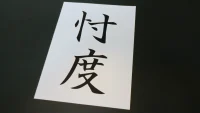What is the meaning and usage of "落としどころ (otoshidokoro)"? Example sentences and English expressions for business

Have you ever heard the phrase "落としどころ (otoshidokoro)"? Perhaps you have encountered this phrase in your workplace. At first glance, this phrase may seem unfamiliar, but it actually represents a very important concept in the business world.
This article details the meaning of "落としどころ (otoshidokoro)," its usage, how to use it in business communication, as well as English expressions, paraphrases, and thesauruses.
▼Goandup Picks Click here for recommended articles!
- Required before studying abroad! Goandup Nihongo+, an online Japanese language learning service
- This page introduces services for foreigners who wish to study in Japan or improve their Japanese language skills to learn Japanese online.
- Goandup Salon" community for foreigners living in Japan
- We introduce an online community where foreigners living in Japan can exchange information and interact with each other to support their life in Japan.
- Goandup Study" supports foreigners who want to study in Japan.
- This section introduces study abroad support services that provide comprehensive support to foreigners who wish to study in Japan, from preparation for study abroad to living in Japan.
- Where can I buy a prepaid SIM in Japan? Recommended SIM cards for foreigners are also introduced.
- How to purchase a prepaid SIM and suitable SIM cards for foreigners.
- The Complete Guide to Pocket Wi-Fi in Japan for Foreigners!
- We introduce how to select and recommend pocket Wi-Fi products that can be used conveniently in Japan.
- The Complete Guide to Finding a Job in Japan! Finding a job, changing jobs, and part-time work for foreigners
- This site provides foreigners who want to work in Japan with comprehensive information on how to find a job, recommended job sites, and other information necessary to find a job.
What does "落としどころ (otoshidokoro)" mean?

"落としどころ" refers to a common point in a discussion or negotiation where both parties feel "this is acceptable." This term is used when indicating a solution or condition that both sides can agree on after a prolonged debate. Specifically, phrases like "落としどころを見つける" (finding a mutually acceptable point) are frequently used in business negotiations or when resolving differences of opinion between individuals. This emphasizes the process of reaching a final agreement and the importance of finding a compromise that both parties can accept, serving as a crucial step towards achieving a mutually satisfactory outcome.
- Conditions that you and the other party to the discussion or transaction would find "acceptable".
- Terms that can be discussed and agreed upon in a transaction.
- Convincing condition.
What is the English equivalent of "落としどころ (otoshidokoro)"?
The closest words in English to describe a "落としどころdrop-off point" are "compromise" and "common ground".
"Compromise" refers to a concession or compromise to arrive at a solution that is acceptable, but not completely satisfactory to both sides. "Common ground," on the other hand, refers to the foundation or common understanding shared by people with different positions and opinions in order to reach an agreement.
These expressions help to simply describe the process of reconciling each other's demands and expectations and ultimately finding mutually acceptable terms.
How to use "落としどころ (otoshidokoro)"

- 落としどころを用意する (Prepare a point of compromise)
- 落としどころを考える (Consider a mutually acceptable solution)
- 落としどころが決まる (Determine the point of agreement)
- うまい落としどころをさぐる (Explore a favorable compromise)
- 感情の落としどころがわからない (Unable to find an emotional resolution)
The "落とす" in "落としどころ" is used to mean "to end" or "to conclude". It essentially means "the place to end" or "the point to conclude", which is used in the context of where a discussion or negotiation comes to an end.
In the case of negotiations and transactions, both the other party and yourself often find conditions under which both parties are willing to follow the other party's conditions to this extent. It seems that "落としどころ" is used for the place where those mutual conditions are met.
The commonly used phrase "感情の落としどころがわからない" is often used when one feels confused due to an overwhelming flood of thoughts, feelings, or emotions about something. Since "落としどころ" implies "acceptable conditions," using it in the context of emotions often occurs in negative scenarios. It suggests an inability to find an emotional resolution or a satisfactory emotional state.
The concept of "落としどころ" is used in a variety of ways in actual communication and negotiation situations. This expression is particularly useful in the following situations
- 落としどころを見つける: The process of finding a solution that both parties can accept.
- 落としどころを模索する: To explore potential points of agreement through negotiation and discussion.
- 落としどころに達する: The moment of reaching a final agreement after adjusting mutual demands.
- 適切な落としどころを探る: To identify the most acceptable conditions for both parties.
- 感情の落としどころを見極める: To seek a point of emotional satisfaction in personal conflicts or differences of opinion.
The verb "落とす" is used to mean "to end" or "to settle," specifically indicating the point where a discussion or negotiation concludes. In negotiations or deals, it's common to find a point where both parties feel "I can accept the other party's terms at this level." The process of finding such mutually acceptable conditions becomes the essence of "落としどころ".
The expression "感情の落としどころがわからない" refers to a state of confusion where one has complex emotions about a situation or event and doesn't know how to process them. This phrase is used when experiencing difficulty in finding an emotionally satisfactory resolution, akin to the challenge of finding "acceptable conditions" in emotional contexts.
Can the "落としどころ (otoshidokoro)" be used in a business setting?

The term "落としどころ" is very commonly used in business situations. During negotiations and conversations, this expression is utilized to find a solution that is acceptable to both parties. This term is especially useful for facilitating negotiations and discussions at work, and is more commonly used in business than in conversations with friends. It is also used to report to a supervisor or team member about an ongoing negotiation or conversation.
Paraphrases and thesauruses for "落としどころ (otoshidokoro)" in business situations
In business scenarios, alternative expressions for "落としどころ" include "妥協点" (dakyōten), "妥協案" (dakyōan), and "折衷案" (secchūan). These words represent the process of finding an agreement or solution that works for both parties.
- 妥協案 (dakyōan): Refers to the result of adjusting specific solutions or proposals from unacceptable to acceptable for both parties.
- 折衷案 (secchūan): Means finding a more balanced solution by skillfully merging the demands and expectations of both sides.
- 妥協点 (dakyōten): Indicates an agreement on conditions that are ultimately acceptable to both parties.
These expressions play an important role in effective communication skills, along with flexible thinking, during negotiations and discussions in business situations. Appropriate use of these paraphrases in the process of seeking the best solution for both sides can lead to a smoother agreement.
Serious employment support to help you realize your dream of working in Japan!

Do you want to work in Japan?
Let us "Goandup" make that dream a reality!
【 Program Features 】
✅ JLPT N3 level Japanese language acquisition
✅ Thorough preparation for the specific skills test
✅ Full support for job hunting in Japan
Business-focused one-on-one lessons will help you find a job in Japan in the shortest possible time.
【 Program Menu 】
- Individual Japanese language lessons
- Intensive curriculum to obtain N3, especially specialized lessons for business Japanese that can be used at work.
- Intensive curriculum to obtain N3, especially specialized lessons for business Japanese that can be used at work.
- Preparation for the Specific Skills Test
- Customized materials for specific skill tests will be used to focus on frequently asked questions and learning to pass the test.
- Customized materials for specific skill tests will be used to focus on frequently asked questions and learning to pass the test.
- Resume and CV support
- To create resumes and CVs tailored to Japanese corporate culture, and to brush up on self-promotion and motivation for application.
- To create resumes and CVs tailored to Japanese corporate culture, and to brush up on self-promotion and motivation for application.
- Interview Preparation
- Guidance on areas for improvement through mock interviews and feedback based on corporate interview scenarios. Learn interview etiquette and behavior unique to Japan.
- Guidance on areas for improvement through mock interviews and feedback based on corporate interview scenarios. Learn interview etiquette and behavior unique to Japan.
- career consulting
- Provide introductions to companies that match the participant's career goals, select companies to apply to, and provide advice on the level of knowledge required by the companies to which the participant is applying.
- Provide introductions to companies that match the participant's career goals, select companies to apply to, and provide advice on the level of knowledge required by the companies to which the participant is applying.
- Chat Support
- In addition to one-on-one individual lessons, we also accept casual questions via DM (visa application, living support, assistance in finding a room, etc.).
If you are serious about your career in Japan, join us now!
▶︎ for more informationclick here.
We will do our best to support your success in Japan!
summary
This article details the meaning and usage of "落としどころ" as well as its use in business situations and paraphrased expressions and thesauruses. The term aims to find terms that are acceptable to both parties and plays an important role in resolving disagreements in business negotiations and in everyday life.
If you have any questions about the use of "落としどころ" in the workplace, you may want to ask your Japanese-speaking colleagues. We hope that this article will help you to negotiate and converse more smoothly in business situations and reach mutual understanding and agreement.
If you would like to learn more about Japanese expressions useful in business situations, please see the related articles below.
- What does [understand well] 「逆に」 mean? Thesaurus and example sentences.
- Explains the meaning of the business term "draft". Is it different from draft beer?
- What is the meaning and usage of the word "drop"? And example sentences in business situations.
- What does "zakkuri" mean and how is it used? Expressions in business situations are also introduced.
- What does "ass" mean as used in business conversation?
- What does "Tatakidate" mean in Business x Japanese? Explanation + Example Sentences
Your support will help us!
Thank you for visiting Goandup Picks. Our mission is to provide you with more useful information to show the world what Japan has to offer.
Your support will help us to further enhance our activities, so please support us!






